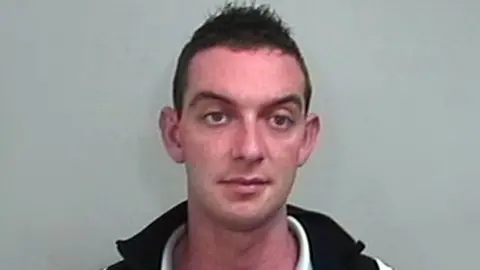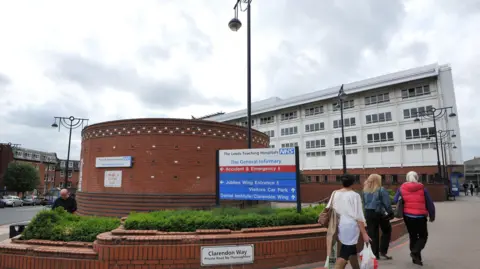Nurse's murder convictions upheld by senior judges
 PA Media
PA MediaA nurse jailed for murdering four elderly hospital patients has lost his appeal against the convictions.
Colin Campbell, previously known as Colin Norris, was found guilty in 2008 of killing four women and attempting to kill a fifth by injecting them with insulin.
Doris Ludlam, 80, Bridget Bourke, 88, Irene Crookes, 79, and Ethel Hall, 86, were being treated on orthopaedic wards where Campbell worked in Leeds in 2002 and developed unexplained hypoglycaemia.
Campbell, orginally from Glasgow, has always maintained his innocence and was granted a fresh appeal earlier this year, but it was rejected by the Court of Appeal on Thursday.
During his original trial, prosecutors said Campbell was alleged to have been present when or shortly before each of the patients suffered hypoglycemia and, because of the rarity of such a cluster of cases happening within a short space of time, he must have been responsible.
He was also found guilty of attempting to murder 90-year-old Vera Wilby and sentenced to life imprisonment with a minimum term of 30 years.
Campbell unsuccessfully appealed against his conviction in 2009 and applied to the Criminal Cases Review Commission (CCRC) in 2011, who said previously that the prosecution had relied on "wholly circumstantial" evidence.
The CCRC referred the case to the Court of Appeal in London four years ago.
 PA Media
PA MediaMichael Mansfield KC, for Campbell, told the appeal court during a 14-day hearing that developments in medical knowledge meant there was more evidence to support the argument the patients may have died from natural causes.
He said the jury in the original trial at Newcastle Crown Court had asked if there were other cases of patients suffering from "sudden and profound" hypoglycaemia in any of the Leeds teaching hospitals after Campbell stopped working.
Four such cases had since been identified, Mr Mansfield told the court, with the deaths recorded between January 2003 and August 2005.
The Crown Prosecution Service opposed the appeal and James Curtis KC told the court the jury in Campbell's trial had been "provided with the necessary relevant facts and issues, from a plethora of highly qualified and clinically experienced witnesses".
He said there was little evidence of "sudden and severe hypoglycaemia when it is caused naturally" and "seemingly no evidence" of this in the patients Campbell was convicted of killing.
He argued the possibility of dying by natural causes was "fully explored" during Campbell's trial.
Giving their judgement, Lady Justice Macur, Mr Justice Picken and Sir Stephen Irwin, said these cases did not help the appeal.
"On our own analysis, the 'extra' cases serve to underline rather than undermine this aspect of the phenomena that are said to be distinctive in those cases of administration of exogenous insulin," they concluded.
They added they had "no doubt" about the safety of any of Campbell's five convictions.
"The appeals are dismissed."
A CCRC spokesperson said: "We referred Mr Norris's convictions to the Court of Appeal in February 2021 after a thorough review, which concluded there was a real possibility the Court of Appeal would find his convictions unsafe."
Listen to highlights from West Yorkshire on BBC Sounds, catch up with the latest episode of Look North.
